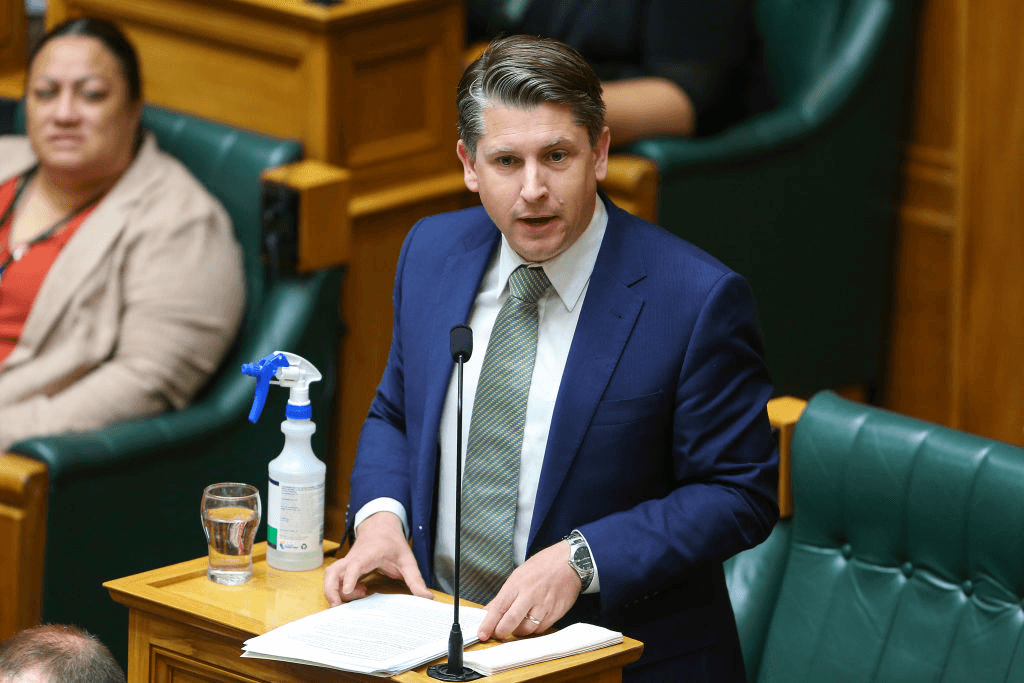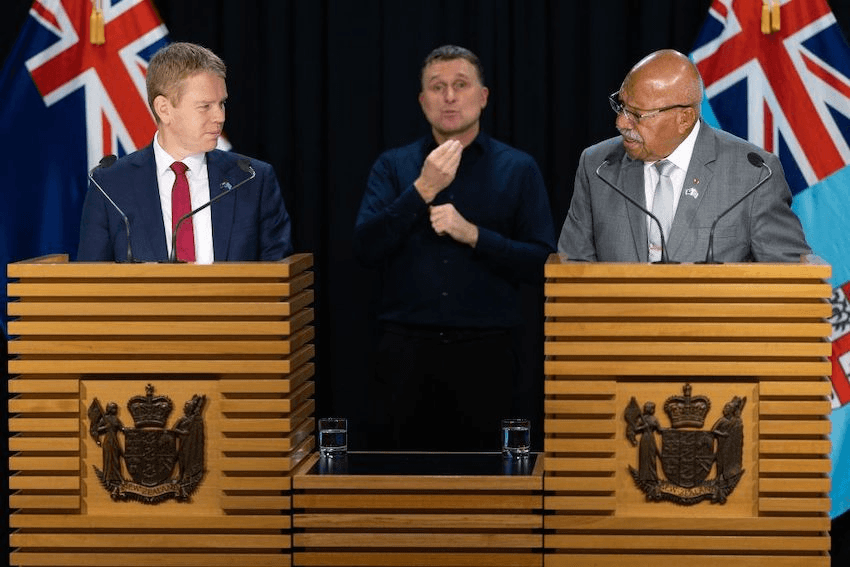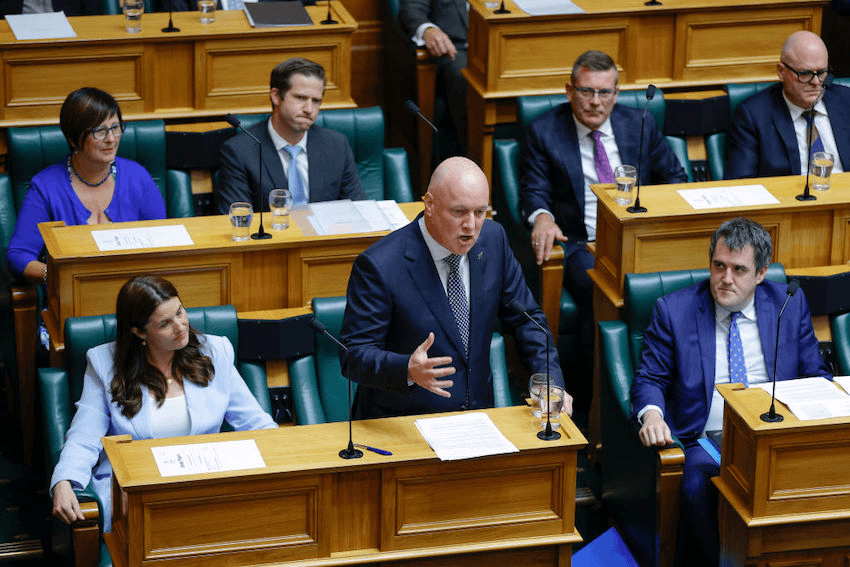In an unexpected plot twist, it’s now been revealed embattled minister Michael Wood was actually asked to get rid of his shares in Auckland Airport 12 times.
Yesterday, prime minister Chris Hipkins said he believed Wood was asked to divest his shares on about half a dozen occasions – though today he updated (doubled) this under questioning from National’s Nicola Willis.
Speaking in parliament, Hipkins said the cabinet office had reviewed the record and found a number of occasions dating back to late 2020 in which Wood was asked to divest his shares. “By my count there were 12 interactions,” said Hipkins. “I think he should have divested the shares when he first said he was going to do so.”
It’s now known Wood was approached a dozen times dating from December 2020, shortly after the general election, through until March this year. “I have indicated that I don’t think minister Wood has not met the relevant expectations and that is why he has been stood down as minister of transport,” Hipkins said.
That's quite an inflation rate.
— Thomas Coughlan (@coughlthom) June 7, 2023
Wood had been approached both in person and in writing over those 12 times, said Hipkins, and this correspondence was subject to the Official Information Act.
Following interrogation from Nicola Willis, many of the Act Party’s MPs in turn took the opportunity to ask variations of a question attempting to raise doubt about the transparency and trustworthiness of ministers.




